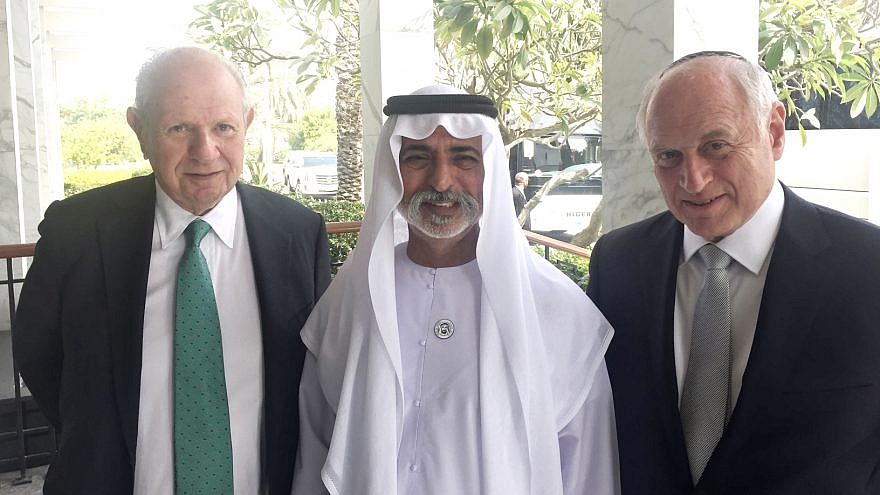Three years ago, the small Jewish community in Dubai founded the first synagogue in the city, Bloomberg News reported on Thursday.
The community, including Jewish citizens of other countries who deal in finance, law, energy, and diamonds, rented a villa in a quiet residential area where they would pray.
The synagogue’s emergence from the shadows at this juncture is very likely related to warming relations reported between Israel, the UAE, Saudi Arabia and other governments in the region.
In October, Prime Minister Benjamin Netanyahu made a surprise visit to Oman, and two other Israeli government ministers visited the UAE a few days later.
“We’ve come a long way since I first started going to Dubai 30 years ago,” Eli Epstein, a New Yorker who helped found the synagogue and donated a Torah, told Bloomberg News. “Back then, people actually told me that I should avoid using my last name because it sounds too Jewish.”
According to Bloomberg, the UAE in particular has sought to project an image of openness, easing restrictions on religions other than Islam in a campaign aimed at generating more business. The country has appointed a minister of tolerance, who in November sponsored a World Tolerance Summit for 1,200 Muslims, Christians, Hindus, Jews and others from around the world.
Despite the improved situation, however, some members of the synagogue are still opposed to speaking openly about it and have long asked visitors not to reveal its location or write about its activities. Public opinion in the UAE is strongly pro-Palestinian and many people there view the government’s warming ties with Israel as a betrayal.
But the UAE’s push toward tolerance has led others to feel it’s safe to gradually lift the veil.
“I’d prefer not to live as a Marrano” said Ross Kriel, a Johannesburg-born lawyer and a lay leader of the group, referring to Jews who professed Christianity to avoid persecution by the Spanish Inquisition while observing Judaism in secret. “The government’s attitude to our community is that they want us to feel comfortable being here, praying here, and doing business here,” he told Bloomberg.
Ghanem Nuseibeh, a co-founder of political risk consultants Cornerstone Global Associates, who occasionally visits the synagogue, told Bloomberg: “For decades, anything Jewish was avoided in the Arab world, and explicit signs of Jewishness were risky. A new generation of Arabs and Jews are more culturally accepting of each other.”



























